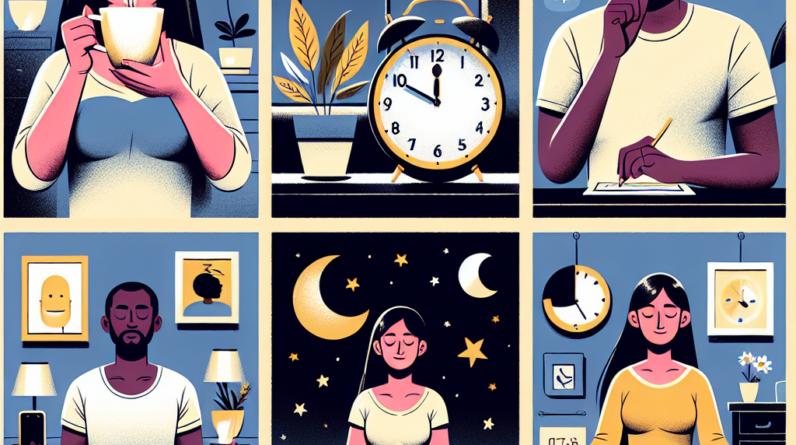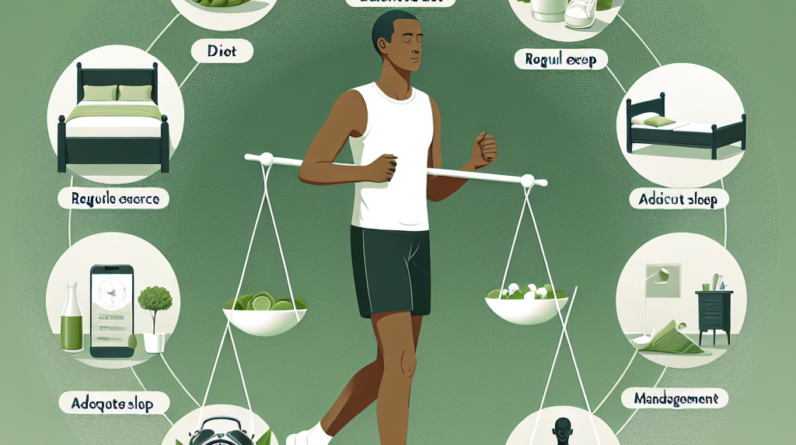
Create a Consistent Sleep Schedule
Set a Regular Bedtime
First off, let me tell you how important it is to go to bed at the same time every night. I know, I know, life can get in the way and sometimes you want to binge-watch that new series until 2 AM! But trust me, your body thrives on routine. When you get into the rhythm of falling asleep and waking up at the same time, you’re training your body to know when it’s time to get some shut-eye.
Get a Huge Discount and Bonus! Try for 90 Days Risk Free
At first, it might feel weird. Like, who are you to tell me what time to sleep? But I found that after a week or two, my body actually started to adjust. I felt more energized in the morning and way less groggy when I woke up. It’s all about giving your body a chance to embrace the routine.
So, if you’re not already doing it, try setting a consistent bedtime this week. You might be surprised at how much better you’ll feel!
Wake Up at the Same Time Every Day
Just like going to bed at the same time, waking up at the same time daily helps optimize your sleep. I’ve realized that even on weekends, if I sleep in too much, it seriously messes with my sleep cycle. It’s like hitting a reset button that doesn’t really reset anything but just confuses your system.
I recommend setting an alarm that you look forward to—something gentle that wakes you up without a shock. I use bird chirps instead of a loud beeping sound; it’s much more soothing. You might even want to try something similar to wake up feeling more refreshed.
Once you nail this part of your routine, you’ll notice you can bounce out of bed instead of hitting the snooze button five times. Your body will appreciate the regular schedule!
Be Mindful of Naps
Naps can be a double-edged sword. They can rejuvenate you for the rest of the day, but they can also throw a wrench into your well-laid sleep plans, especially if you nap too late in the day. I’ve learned through trial and error that short power naps are best. If I sleep for more than 30 minutes, my nighttime sleep suffers.
Timing is everything! I usually aim to take a nap early in the afternoon if I’m feeling a bit drained. This way, it doesn’t interfere with my bedtime. Plus, there’s something about those mid-afternoon z’s that really helps boost my productivity.
If you find naps are your go-to but make you groggy later, it might be worth experimenting with shortening your naps or skipping them altogether. You could be in for a surprise when you realize you don’t need them as much as you thought!
Get a Huge Discount and Bonus! Try for 90 Days Risk Free
Optimize Your Sleep Environment
Control the Light
Honestly, when it comes to sleep, light is your enemy. I realized this when I started to pay attention to how much light there was in my room—especially from screens! I made it a rule to dim the lights an hour before bed and keep my phone away to avoid that late-night scroll.
I also invested in blackout curtains, which have been a game-changer. They keep my room nice and dark, no matter what time the sun rises. It’s amazing how much better I sleep when it’s completely dark—like a cave, but, you know, a comfy one.
Try these little tweaks: switch off bright lights, use lamps instead, and see how just changing your light exposure can make your sleep more restful. Your body and mind will thank you.
Keep It Quiet
Sound can be just as disruptive as light when you’re trying to catch some Z’s. I learned this the hard way. Even small noises—like a ticking clock or the neighbor’s dog—could keep me wide awake. My solution? I invested in a white noise machine, and wow, what a difference!
Need a Serious Energy BOOST? Huge Discount Try for 90 Days Risk Free
This little device creates a consistent sound that drowns out other disturbances. I also love using earplugs when I really need to zone out. You’ll find peace of mind knowing that you won’t wake up to every little ruckus in your home or neighborhood.
If you’re living in a noisy environment, don’t hesitate to experiment with different sound solutions. Whether it’s white noise, nature sounds, or good ol’ earplugs, find what works for you to maintain that cozy, quiet atmosphere.
Temperature Control
Now, let’s talk temperature. Have you ever been too hot at night? It’s such a mood killer! I found that keeping my room cool—ideally around 60-67°F (15-19°C)—helps me sleep like a log. I even have a fan running for that lovely breeze and white noise effect.
It’s smart to invest in breathable bedding as well. I ditched my heavy comforter for a lighter option, and now I’m so much comfier. For those really warm nights, consider cooling pillows or a mattress with good airflow. Trust me, finding that optimal temperature can be a total game changer.
Try experimenting with different combinations until you find the magic temperature that makes you feel snug and cozy through the night. Your sleep quality will skyrocket!
Incorporate Relaxation Techniques
Meditation
Speaking of winding down, I can’t stress how much meditation has helped me ease into sleep. Even just 5-10 minutes of mindful meditation before bed calms my racing thoughts and allows me to transition to sleep more seamlessly.
You don’t need to be a pro at it! Just find a quiet space, close your eyes, and focus on your breath. There are tons of apps out there that help guide you through beginner meditations. Give it a shot; you’ll be surprised at how much calmer you feel afterward.
Consider incorporating gratitude into your meditation session. I like to reflect on three things I’m grateful for that day. This practice shifts my mind away from stress and into a more peaceful state, perfect for sleeping.
Good Health Solution is Easier Than Most People Think!
Take a Look for Yourself!
Gentle Yoga
Just like meditation, yoga can help you unwind after a long day. I personally love a few gentle stretches or a restorative yoga practice right before bedtime. It’s such a relaxing way to release tension built up in my body.
Focus on deep breathing into each pose. I usually pick stretches that target my neck, back, and shoulders. They hold a lot of the stress from my afternoons. Plus, it’s such a lovely way to say goodbye to the day.
Why not make this your new nighttime ritual? I promise you’ll feel a sense of peace that’ll sweep you right into dreamland. Give it a try; you might wow yourself with those quiet moments before sleep!
Aromatherapy
One of the sweetest parts of my night routine is using essential oils. I discovered aromatherapy a few months back, and it’s become a staple. Lavender is my go-to—I dab a little on my wrists and pillow, creating a tranquil oasis that lulls me into sleep.
Essential oil diffusers are also fantastic for dispersing calming scents around your room. I love experimenting with different calming blends, like chamomile or cedarwood, especially on hectic days.
Have fun with this! Create your own relaxing scent blend that makes you feel comfy and safe. It’s such a simple and enjoyable trick to enhance your bedtime routine.
Limit Screen Time Before Bed
Set a Technology Curfew
This might be one of the hardest tips to swallow in the age of screens, but it’s so vital. I’ve had to set a hard rule for myself: no screens at least an hour before bed. Honestly, at first, it felt impossible. I mean, how do you disconnect from Netflix, Instagram, or TikTok at the end of the day?
What worked for me was finding other engaging activities to fill that time instead—like reading a book, journaling, or even tidying up my room. Who knew a little cleaning could be so therapeutic? My sleep quality improved tenfold after ditching screen time.
Give it a shot! You might find that time away from screens works wonders on your mental clarity before sleep. You’ll be amazed at how refreshing it is to step back for a bit!
Blue Light Filters
If you absolutely must use screens before bed, try using blue light filters or glasses. I caved and bought a pair of blue light blocking glasses, and let me tell you, it drastically reduced eye strain and helped me wind down better at night.
Many devices also have night mode settings. I tinker with these, setting warmer hues that are less harsh on my eyes during the evening. This is particularly handy when I need to reply to emails or catch up with friends online.
Even small adjustments like these can bridge the gap between your screen time and better sleep. Explore options that work for you, and don’t be afraid to mix and match methods until you find what fits best!
Mindfulness Apps
Lastly, there’s a galaxy of mindfulness apps out there that will help you wind down at night. I’ve found guided meditations and soothing sounds through an app that takes me from a frantic day to a peaceful night. Just pop in your headphones and zone out!
These apps usually offer plenty of relaxing content tailored precisely for sleep. It’s like having a personal sleep coach right in your pocket! This way, even if you find it tricky to step away from screens, you still have a resource to help you unwind.
Not only do I get better sleep, but I also wake up feeling refreshed and ready to tackle the day ahead. Explore different apps or tools to find what speaks to your soul and helps you relax at night.
FAQs
1. How long does it take to see improvements in my sleep with these tips?
It varies from person to person, but many notice improvements within a week or two after implementing a consistent sleep schedule and creating a relaxing bedtime routine.
2. Can I combine different tips for better results?
Absolutely! Combining relaxation techniques, optimizing your sleep environment, and maintaining a sleep schedule can work wonders together. It’s all about finding what meshes well for you.
3. Are there any specific foods I should avoid before bed?
Yes! Caffeine-rich foods and drinks, along with heavy meals, can disrupt your sleep. It’s best to steer clear of those a few hours before bedtime.
4. What if I wake up in the middle of the night?
If you find yourself awake at odd hours, try to get out of bed and do a quiet, calming activity until you feel sleepy again. This helps avoid the anxiety that can come from staring at the clock!
5. How important is a good mattress for better sleep?
Very important! A comfortable mattress that suits your sleeping style can make a massive difference in sleep quality. If yours is too old or uncomfortable, consider upgrading it!








